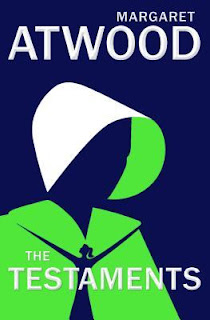(Chapter 1: The Glass House) The reedy and excitable twenty-six-year-old recent Harvard graduate, full of anticipation, was motoring out to an open field in Potsdam, Germany, to attend a Nazi youth rally. Part of the draw for the Harvard man was the chance to see and hear, in person, Adolf Hitler, who was still several months away from ascending to the chancellorship of Germany but already the talk of Europeans and Americans in the know. Another factor in the draw to Potsdam was the opportunity to witness up close the dazzling spectacle reliably on display at Nazi rallies.
The way Johnson envisioned the Father Coughlin Labor Day event in Chicago, it would recreate the pageantry of a Hitler rally, not unlike the Hitler Youth rally he'd attended in Potsdam four years earlier. "The police were all pro-Coughlin, especially the Irish," Johnson told a Coughlin biographer fifty years after the fact.
Summary:
Rachel Maddow traces the fight to preserve American democracy back to World War II, when a handful of committed public servants and brave private citizens thwarted far-right plotters trying to steer our nation toward an alliance with the Nazis.
In the 1930s there was a wild American strain of authoritarianism that has been alive on the far-right edge of our politics for the better part of a century. Before and even after our troops had begun fighting abroad in World War II, a clandestine network flooded the country with disinformation aimed at sapping the strength of the U.S. war effort and persuading Americans that our natural alliance was with the Axis, not against it. It was a sophisticated and shockingly well-funded campaign to undermine democratic institutions, promote antisemitism, and destroy citizens’ confidence in their elected leaders, with the ultimate goal of overthrowing the U.S. government and installing authoritarian rule.
That effort worked alongside an ultra-right paramilitary movement that stockpiled bombs and weapons and trained for mass murder and violent insurrection.
At the same time, a handful of extraordinary activists and journalists were tracking the scheme, exposing it even as it was unfolding. In 1941 the U.S. Department of Justice finally made a frontal attack, identifying the key plotters, finding their backers, and prosecuting dozens in federal court. These efforts at bringing the insurrectionists to justice largely failed.
While the scheme has been remembered in history—if at all—as the work of fringe players, in reality, it involved a large number of some of the country’s most influential elected officials. Their interference in law enforcement efforts against the plot is a dark story of the rule of law bending and then breaking under the weight of political intimidation.
The tentacles of that unslain beast have reached forward into our history for decades. But the heroic efforts of the activists, journalists, prosecutors, and regular citizens who sought to expose the insurrectionists also make for a deeply resonant, deeply relevant tale in our own disquieting times. (Publisher)
Review: On a recent trip my husband and I listened to the audiobook of Prequel read by Rachel Maddow herself. We watch Maddow every Monday evening on MSNBC and she mentioned aspects of this book and the podcast Ultra on the same topic. We were prepared mentally for the book's topic but I was not prepared emotionally. I got so angry and sad as I listened. It infuriates me that Americans would want to give away their (our) rights to an autocrat like Hitler and that is just about what happened.
If you have never read any of Maddow's books I want you to know that she does exhaustive research. I am fairly sure that all the facts and details in Prequel have never been pulled together in one spot before which increases the impact ten fold. There is no way I can even begin to touch on everything she includes in the book so I thought I would focus on just a few of the historical details that match what is happening today in politics.
Throughout the book we learned that many of the people who were pushing the American First/Pro-Authoritarian agenda in the 1930s and 40s were actually funded by the German (Nazi) government. Some were paid money and others, like some of the legislators who pushed the far-right agenda and attempted to stifle efforts to find out what was going on, were rewarded with money flowing to their pet projects and reelection donations. Sound familiar? We don't have 50+ years of research to back up these claims but the Mueller report did find that Russia interfered with our elections in 2016 and made attempts in 2020 and 2022. Putin wants Trump to be elected again so that Trump will withdraw support for Ukraine. The Republican agenda today is moving toward being more and more pro-Russia.
The church played a role in the far-right agenda in the 1930s. Father Coughlin had a super popular radio show and his message was very racist, antisemitic, and isolationist. He had a huge following with millions of people tuning in to his show every week. Today we know that evangelical Christians have thrown their support behind Trump and the Republican agenda, even though the message is the opposite of what Jesus taught his followers to do -- love your neighbor as yourself.
The judicial system in the 1940s was overwhelmed and essentially swamped by the insurrectionists when they were finally brought up on charges. Delay, tomfoolery, and lack of respect for the justice system were all partially to blame. Essentially most of the indicted individuals never served a day in prison. Though many of the insurrectionists from January 6, 2021 have been convicted and received prison sentences but most of them are low-level participants, not the organizers. Of the 91 indictments Trump has received he has so far been successful in using delay tactics to his benefit over and over again.
Those of us in the literary world all know that a 'prequel' is a book which was written after the first book about events that happened before. The prequel gives history and context to further the story and the reader's understanding. Rachel Maddow's book is a prequel to what is happening in politics today. She is giving us history and context to round our knowledge in hopes that we will thwart the efforts by many who seem eager to give away our democracy.
The book is a warning! Are we paying attention?
RULES:
























